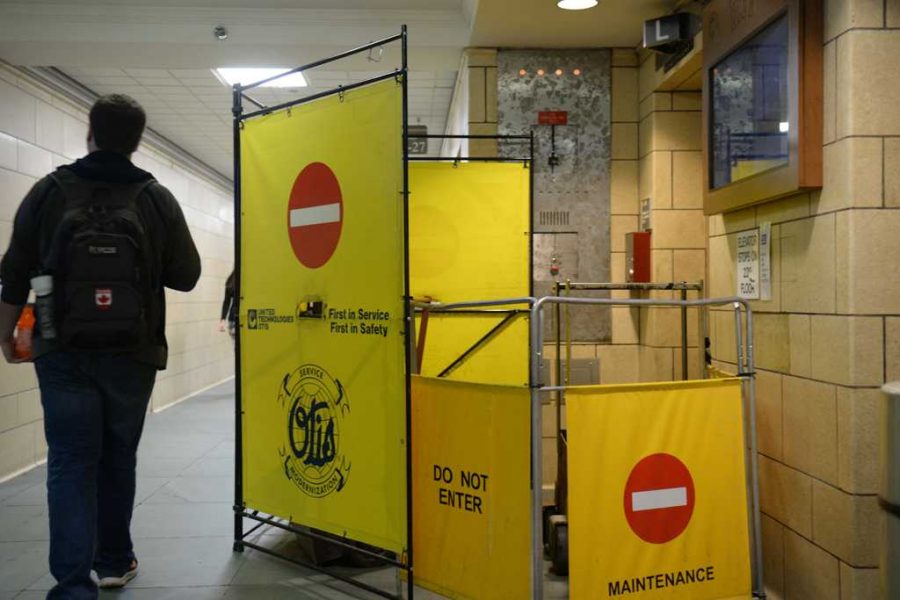While students will benefit from new elevators in Sutherland Hall, construction workers and the city can benefit from the process of renovating them.
Renovations, which will include making the elevators in Sutherland Hall ADA compliant and energy efficient and will reduce maintenance costs, are one of many multi-campus construction projects that Pitt’s Board of Trustees Property and Facilities Committee approved at a meeting on Sept. 28. The board approved two projects and five leases for renovation and construction at the meeting. According to the Committee, the projects are expected to cost $25,635,000 in total and create 138 construction jobs and 55 support jobs.
University spokesperson John Fedele said the Committee calculated these numbers with a common formula in the construction industry — one Pitt has used since the 1990s. The formula calculates construction costs and projects to determine the number of construction workers the University can hire.
Philip Cynar, senior communications specialist at Allegheny Conference on Community Development, said the impacts of these renovations are about more than the finished project.
“Projects like these generally do have an economic impact beyond campus,” Cynar said.
The Board approved the majority of the money, $23 million, to renovate the John P. Murtha Center for Public Service and National Competitiveness at Pitt’s Johnstown campus. The project will include the construction of a new building for the Murtha Center, exterior renovations to Johnstown’s Engineering and Science Building and renovations to laboratories in Johnstown’s Krebs Hall.
The Murtha Center will provide a multipurpose space on Johnstown’s campus, said Art Ramicone, senior vice chancellor, chief financial officer and interim executive vice chancellor.
“[The Center] is capable of hosting workshops, academic symposia, student assemblies, public debate and discussion and inquiry into key local, regional and national issues,” Ramicone said.
The remainder of the approved funds, $2.64 million, will go toward renovating the elevators in Sutherland Hall — a residence hall on Pitt’s main campus that primarily houses freshmen honors students and freshmen athletes. The board also approved five leases for University facilities and research programs.
The leases include three five-year leases from $561,302 to $823,535 for buildings, like the University’s Center for Craniofacial and Dental Genetics at Bridgeside Point I, and to support research programs at the University of Pittsburgh Cancer Institute at Sterling Plaza.
The board also approved two ten-year leases for $803,317 to house programs in the School of Social Work at 403 E. Winding Hill Road and for $448,206 to house the Office of Finance at Schenley Place.
The Board expects these leases to generate $229,688 annually in property taxes for local government.
Pitt spokesperson John Fedele, said this number came from a “taxes paid” calculation, which determines Pitt’s pro rata share of the actual real estate taxes that the University assessed and paid on that particular building.
“Pitt’s pro rata share is simply the amount of square footage we are renting as a percent of the total square footage in the building,” Fedele said. “The other tenants would obviously also be paying their pro rata share.”
Pitt spokespeople Sharon Stewart Blake and Anthony Moore said they could not comment on the impact the job creation and tax revenue would have on the city and the region.
The construction industry has been accelerating in Pittsburgh recently, which leads to job creation and tax revenue, according to Cynar.
“We have seen a pretty lively construction industry in terms of activity in the region. Pitt’s projects should help to sustain that.” Cynar said.


